- Home
- Brian Lumley
Ship of Dreams Page 12
Ship of Dreams Read online
Page 12
“Cowards,” Mathur repeated. “Oh, you’re safe enough here—but come, come, tell me all. What of Gytherik, and my good wife, his mother? And how is Thinistor dead? And if he is, how am I ever to be out of this place? And—”
“Whoa!” cried Hero. “Let me tell it on my own time.” And without more ado, he did.
By the time he was done Mathur was reduced to tears. Not tears of self-pity—though that might have been expected even in a strong man—but tears of frustration. Frustration that his wife lived and loved him still and did not even know for sure that he still lived. Frustration that even though he was found at last, and by good men, still he was lost. Frustration that his son had been so close, physically, geographically, without ever knowing it. And the adventurers, feeling useless, could only watch until the tears dried up.
Finally Eldin said, “When we go, you go with us, Mathur Imniss.”
Slowly the sad, ragged man shook his head. “No,” he said, holding out his left hand to show them that shriveled, warped index finer. “No, for this is the nature of the spell which Thinistor laid upon me: that to step beyond the cave’s mouth is to die, twisted, shriveled and blasted like this finger of mine. Once, when I was half-mad with loneliness and despair, I tested his spell. This zombie finger is the result. I held it out under the arch of the entrance for one second only. No, I stay here for the rest of my days—or until the spell is lifted.
“Or until your Gytherik does us in,” said Eldin darkly.
“It doesn’t have to be that way,” Mathur said. “Thinistor always left counterspells to his spells. My spell—the one that holds me here—can be broken by breaking a shantak-bird’s egg.”
“But the shantaks nest beyond Inquanok,” said Hero, “and they’re notoriously fierce when it comes to protecting their eggs.”
“Exactly,” Mathur nodded bitterly. “Thinistor knew that, too. It was his way of extracting the last drop of juice from the meat of my predicament. How can I possible gain possession of a shantak’s egg down here? For I myself must break the egg, you see, before I would be free to go. And even then I must find my own way out of here. An utterly impossible situation.”
“Not if we could somehow get out of here—” Eldin began.
“—And somehow fetch you a shantak’s egg,” added Hero.
“Would you do that?” Mathur sprang to his feet, trembling with hope, hugging first Hero, then Eldin. “Would you? But how could I ask it of you? To go out from here, braving all the terrors of the underworld, and then to return! And in between, to journey beyond far Inquanok, there to steal the egg of a shantak-bird. No, too much—too much! No man could expect it.”
“We’re questers,” said Eldin gruffly, overcome by Mathur’s mixed emotions. “We—er, enjoy such adventures. Right, Hero?”
“Why, er, yes—right!” agreed the other. “Certainly we always seem to be getting mixed up in them. But you’d have to do your bit, Mathur. Perhaps you could start by telling us what you’ve learned of this place while you’ve been here? Maybe we could benefit from your experiences. You might even know a way out, forbidden to you through Thinistor’s spell but passable to us?”
Mathur snapped his fingers with a sharp crack. “Perhaps I can help you! Well, not I myself, no, but—”
“But?” together they prompted him.
“My friend,” he said.
“There’s someone else down here?” Eldin looked sharply about. “I don’t see him.”
“He’s not here right now,” Mathur somewhat uncertainly explained. The adventurers frowned and looked at each other, and eventually Hero snorted:
“Not here? You mean he’s out there—in the Vale of Pnoth?”
“Somewhere out there, yes,” Mathur agreed. “You see, he’s not human. In fact, I’m not even sure he’s a he!”
Hero and Eldin sighed in unison and the latter asked: “I suppose you’d better explain. It’s your turn, after all. What is this friend of yours? A gug, a ghast … a ghoul?”
“A ghoul!” exclaimed Hero, wrinkling his nose. “I really don’t think we ought to have any truck with—”
“No, no, no!” cried Mathur. “He—it—isn’t any of those. It’s nothing I ever heard of before Thinistor put me down here. It’s, well—it’s a thing.”
“A thing?” Hero and Eldin hollowly chorused.
“Yes,” Mathur nodded. “A running thing.”
CHAPTER XVII
The Running Thing
Suddenly, much to Hero’s astonishment, Eldin cried, “Ben Gunn!”
“Eh?” said Hero. “Ben who?”
“Gunn, Gunn!” Eldin repeated, his irritation showing as he began to feel foolish. Dim memories from his previous life, momentarily glimpsed, were gradually receding. Of Mathur Imniss he inquired: “Do you, by any chance, like cheese?”
“My wife used to make it from goat’s milk,” Mathur replied. “Indeed I did like it—but why do you ask?”
“No craving?” questioned Eldin.
Mathur shook his head, bewildered.
“What’s all this about?” asked Hero, frowning. “Cheese? Ben Gunn? Craving … ?”
“Forget it!” Eldin abruptly snapped. “It’s just something I seem to remember from the waking world—I think. Not important.”
“Well, good,” said Hero. “Fine! And now that’s done with, do you think we might lend ear to Mathur here? What he’s trying to tell us might be very important!” He turned back to Mathur. “Would you like to continue?”
Mathur nodded and sat for a moment wringing his thin hands. Finally he began. “There’s not much to tell, really. Thinistor put his curse on me and had his gaunts bring me down here, to this very cave. He told me what would happen to me if I tried to flee the p)ace—told me also that I could break the spell by breaking the egg of a shantak-bird—then left me here to fend for myself.
“During the first day—or for what I judged to be a day—I explored the cave. I found water dripped from stalactites into a pool back there, and some mushrooms. The mushrooms are different from those you find in the fields up above. They’re fleshy, tough, not so tasty. But you can live on them. I have.”
“You’ve lived on mushrooms?” Hero repeated him.
Mathur nodded once and continued: “Very sustaining, but not very fattening. Anyway, after I had been here some time—two days, three, a week, how can one tell?—then the running thing returned.”
“Returned?” Hero queried.
“Oh, yes. This is where the running thing lives. It’s his cave. I don’t suppose Thinistor knew that. Or maybe he did—it makes little difference.
“As fortune would have it, I saw his return. I was sitting here close to the cave’s entrance, just as we are now. I was gazing out into the darkness, still numb with the horror of being trapped down here. Then, out and away in the Vale of Pnoth, I saw a light. It was strange, that light, a glow like that of lightmoss—which as it happens it was—and growing larger and brighter, or so it seemed, by the minute.
“As it drew nearer so the unpleasant creatures of the vale grew silent, moved off, left it a clear path … which I was soon to discover led to my cave. Or rather, its cave. As I watched, frequently the light would disappear, obscured by boulders or heaps of bones; but always it grew larger, which warned of its bearer’s rapid approach.
“Then it came—but not directly, not upon any sort of ordered or sensible seeming course. Just why he—it—runs that way I cannot say, but its mode of travel is strange to say the least. Here and there it moves, pausing briefly, then off again, as if searching—but for what? And then a sudden burst of speed for a hundred yards, and another pause, a dart here and a start there—and off again. But always closing with the cave.
“Soon it was plainly visible, moving rapidly across the clear area immediately in front of the cave; and as soon as I could make out its size and shape, then I became very afraid. I drew back and tried to hide myself, for suddenly it seemed to me that I might know the reason for the cr
eature’s crazy stopping and starting motion. Perhaps it was sniffing me out!
“Mercifully I was wrong, and still I don’t know why the running thing does that. And something else: for all that he—I’m sorry, but I must call the creature ‘he’—for all that he’s different, I mean really different, still I envy him. He’s not trapped in the cave, you see? At least he has the run of the vale—of all the underworld, for all that I know.
“Anyway, the other creatures of the underworld—the dholes and the rat-sized flea-things that infest them—they moved quickly away as the running thing came. Not only do they fear the lightmoss with which he lights his way, they also fear him. And with every reason! I have seen him ravage amongst them. And afterward the shadows they make are different. They don’t move anymore; and the smell of their corpses lingers until the dark winds blow …
“And so he came to the cave. When he entered I was peeping out from between a pair of close-grown stalagmites; and though I believed myself well hidden, still he sensed me at once. With a start and a run and a great stiffening of his long fur—which made him seem three times greater in size—he found me and backed me up against the wall of the cave. His eyes examined me and his breath blew warm on my face. He opened his great mouth and his teeth were curved needles that grew in rows down the whole great length of his throat.
“I knew then that I was finished, that he was about to kill me, and so I fell to my knees before him and offered up prayers to the Great Gods of Eld. I had no weapon; what else could I do? Should I throw myself into his jaws and simply end it like that? No, prayer seemed to me to be the right thing, and I have always served the Gods of Eld. And certainly it was my prayers saved me.
“For my prayers, or the voice that uttered them—my human voice—seemed to fascinate the running thing. A dog will rush at you snarling, and when you talk to him he’ll wag his tail and sniff your hand and whine … and eventually sit down at your feet to be patted on the head. So it was with him. As I prayed out loud so he gradually closed his great mouth and moved closer, listening, purring his pleasure. Ah, yes—it’s a strange and moving sound that: when the running thing purrs.
“Well, as you probably know, the chanted prayers to the Elder Gods are a form of singing. And so it dawned on me that the running thing likes singing, that he would not attack me so long as I sang to him …”
“Hero sings,” Eldin interrupted, hardly bothering to disguise his disgust. “He’s a poet, too.”
“Then he’ll soon make friends with the running thing,” said Mathur.
“Right now,” Hero yawned, “I would much rather make friends with a bed of this lightmoss. I never felt so knackered!”
“Me too,” Eldin agreed, fighting to stifle a sympathetic yawn of his own.
“Of course you’re tired,” said Mathur solicitously. “You must be, after your flight across the Vale of Pnoth. Very well, I’ll show you how to make your beds. We can talk again when you’re rested. My own bed’s on a ledge deeper inside the cave.”
They bundled together twin heaps of moss and the adventurers stretched themselves out fully clothed. Mathur, because he was too excited to sleep, simply sat and watched them. Before closing his eyes, Hero thought to ask: “Mathur, just how d’you suppose the running thing can help us get out of here?”
“Why, he would carry you out, of course!” the oldster answered.
“Carry us?” Eldin rumbled, half asleep. “Both of us? Just how big is this running thing?”
“Oh, he’s big,” answered Mathur. “Indeed he is …”
Five times the adventurers slept, and they ate mushrooms until Eldin complained of them coming out of his head. Time seemed to stand still in the continual sameness of the place and the newcomers soon came to despair of the running thing’s ever returning. Which was just about when the creature chose to return …
They were all three seated on large stones near the entrance when a faint will-o’-the-wisp light appeared out in the Vale of Pnoth. Hero saw it first but tended to believe that his eyes, dulled with monotony, must now be playing tricks with him. He blinked, rubbed at his eyes, stared harder out across the shadowy and menacing vale, and finally said: “No, I’m not seeing things at all. Or rather, I am. There’s a light out there, a moving light!”
“Hmm?” said Eldin, lost in thought; and then, as Hero’s statement took hold: “What? A light? Where?”
“There—” and Hero pointed.
“That’s him,” said Mathur, starting to his feet. “That’s the running thing.”
Now the adventurers grew apprehensive, and Eldin asked, “Just what measure of control do you have over this running thing, Mathur?”
“Control? I think he understands me, if that’s what you mean. He does me no harm. I believe he enjoys my company.”
“And you sing at him, right?” Eldin pressed.
Hero gave a nervous snort. “Hah! So you’re beginning to wish you had a singing voice after all, eh, old lad? Perhaps you’ll mock my tunes a little less in future.”
“Look!” cried Mathur. “See—the way he stops and starts—to and fro and back and forth? Oh, that’s the running thing, all right! When he draws nearer to the cave you’ll be wise to get behind me. At least until I’ve introduced you.”
“Hero,” said Eldin in his softest voice. “I somehow know that I’m not going to like this. Look out there across the vale. See how the shadows seem to be drawing back? The dholes are clearing out. What sort of creature do dholes fear, eh? And Mathur says he’s seen the running thing ravaging amongst them. Ravaging? Amongst dholes?”
The light was brighter now and rapidly approaching across the boulder-strewn ground some two to three hundred yards beyond the cave’s mouth. No shape was discernible as yet, merely a dim-glowing aureole that zigzagged and darted and paused here and there like a wasp at a picnic. Then, with a rush and a scurry—with breathtaking rapidity—the thing shot across the final flat stretch of ground and came to an abrupt halt just beyond the cave’s mouth. And as the dust settled about the thing’s many, many feet, so the adventurers crept quietly behind Mathur and did their best to become very small.
“Hero,” Eldin quietly croaked, giving his colleague a tiny dig in the ribs. “Do you know any good songs?”
Flattening itself to the ground, sniffing loudly like a bloodhound on someone’s trail, the running thing entered the cave; and despite Eldin’s horror—or perhaps because of it—a vague memory from the waking world of men stirred in his mind at sight of the thing.
“Oniscus Porcellion,” he breathed. “Wood louse—but what a wood louse!”
The thing turned to them, its head swiveling, its many legs scurrying to swing its body around; and as if it took exception to Eldin’s remark, so the mat of glossy hair on its segmented back rose up in an angry ruff. It sniffed at Mathur and nuzzled him as he hummed a greeting, then gently nudged him to one side with its plated snout. Now it loomed before the adventurers, its ruff stiffening, bright eyes glinting and great jaws partly open.
They could see the lightness which grew upon the thing’s sides, forming a glowing oval all about it; they smelled the warm, not unpleasant odor of it—like the smell in the heart of a forest after rain—and they glimpsed its curving needle teeth as the jaws opened wider yet. It was then that Mathur said: “Sing, quickly, while he’s undecided!”
From somewhere in his nose Hero forced an odd, trembling note. Then, drawing air, he began a tune; a trifle wobbly at first but gathering strength as he proceeded. It had no words, that melody, for it was an old cradle song, a tune to be hummed. The reaction of the running thing was immediate: it purred loudly and nuzzled Hero’s chest. Then it lifted is head and turned its eyes upon Eldin.
Without pause the older adventurer cleared his throat. He put one hand on his chest, cast his eyes to the cave’s shallow ceiling, opened his mouth—
And sang:
“Git arlong, liddle dawgee, git arlong—”
CHAPTER XVIII
Escape from the Underworld
The trip through the underworld was fantastic for many reasons. Fantastic for the way in which it was achieved—upon the segmented, furry back of the running thing, which in motion felt like a cross between a rhumba and, especially on inclines, a roller coaster—fantastic also for the weird, otherworldly scenery it offered, and particularly fantastic for the speed with which it was accomplished.
As a prelude there had been three or four sleep periods, many hours of song, a lot of talking to the creature, even the unexpected spectacle of the running thing “ravaging” amongst a half-dozen dholes which encroached too close upon the confines of its cave, and finally its growing restlessness as it felt the pull of unknown wanderings in the labyrinthine underworld. And through every waking hour, over and over again, Mathur had talked to the creature, repeatedly explaining the requirement of the adventurers, that the great multi-pede convey them to a region from which they might make their way back to the world above.
And at last the pair had said their farewells to Mathur—making him their promise that they would not rest until he was free of Thinistor’s spell and out of his prison—before climbing up onto the trembling back of the gigantic, music-loving, subterranean crustacean which their host had named the running thing. Then, with a breathtaking rush and a start they were off; and for all that they had known many previous adventures in the land of Earth’s dreams, this was perhaps the strangest.
Hanging on grimly to the running thing’s carapace where they lay upon its slightly curving, deep-fur covered back, the pair were not sorry when they cleared the Vale of Pnoth and entered a region of mighty stalactites. The underworld’s ceiling was low here, mere hundreds of feet over their heads, and many of its great smooth stalactites met with stalagmites thrusting up from the floor to form tremendous columns.
Between these vast, natural supports, here and there, deep black pools of water made ebon mirrors of utterly glassy aspect. From one such pool, as the running thing darted by, a lashing tentacle erupted in a spray of inky water—but lashed in vain for the many-legged mount of the adventurers had already passed beyond its reach. This happened several times before the ceiling reared away out of sight once more and the pillars faded into the dim distances behind them.

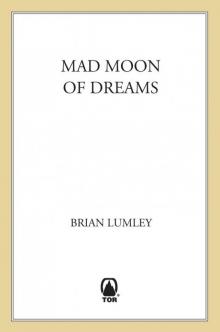 Mad Moon of Dreams
Mad Moon of Dreams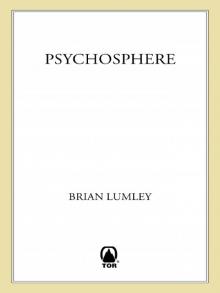 Psychosphere
Psychosphere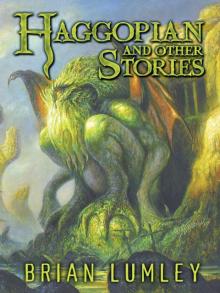 Haggopian and Other Stories
Haggopian and Other Stories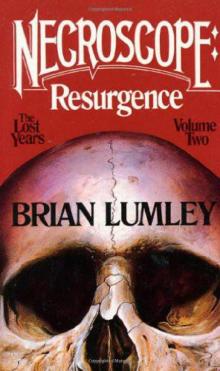 Resurgence_The Lost Years_Volume Two
Resurgence_The Lost Years_Volume Two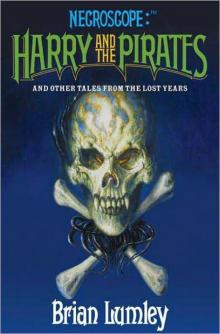 Necroscope: Harry and the Pirates: And Other Tales From the Lost Years
Necroscope: Harry and the Pirates: And Other Tales From the Lost Years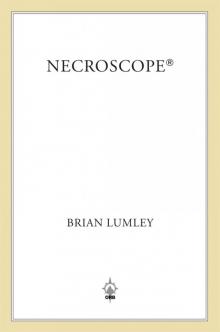 Necroscope®
Necroscope®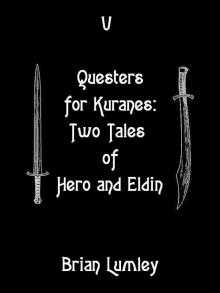 Dreamlands 5: Questers for Kuranes: Two Tales of Hero and Eldin
Dreamlands 5: Questers for Kuranes: Two Tales of Hero and Eldin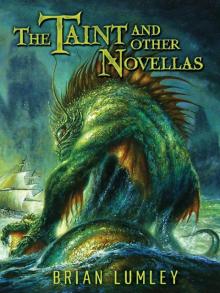 The Taint and Other Novellas: Best Mythos Tales Volume 1
The Taint and Other Novellas: Best Mythos Tales Volume 1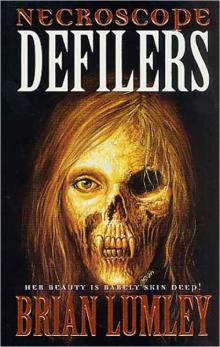 Necroscope: Defilers
Necroscope: Defilers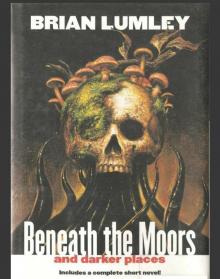 Beneath the Moors and Darker Places
Beneath the Moors and Darker Places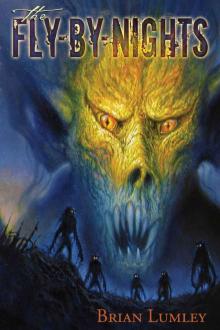 The Fly-By-Nights
The Fly-By-Nights Khai of Khem
Khai of Khem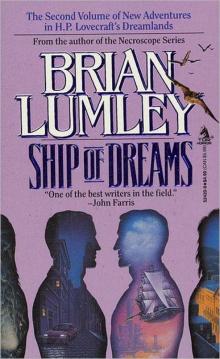 Ship of Dreams
Ship of Dreams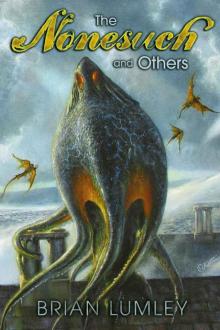 The Nonesuch and Others
The Nonesuch and Others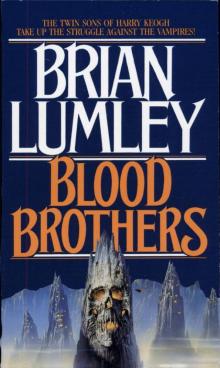 Blood Brothers
Blood Brothers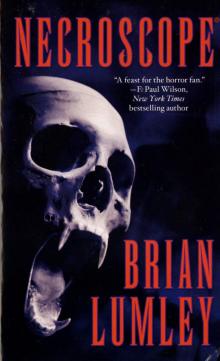 Necroscope
Necroscope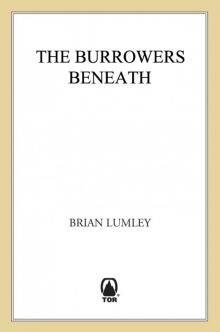 The Burrowers Beneath
The Burrowers Beneath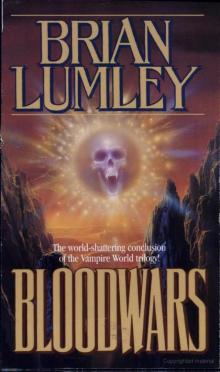 Bloodwars
Bloodwars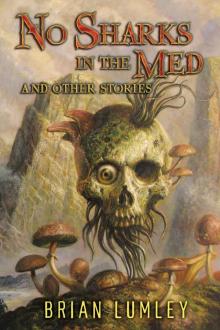 No Sharks in the Med and Other Stories
No Sharks in the Med and Other Stories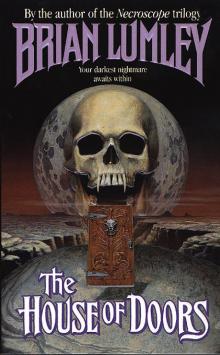 The House of Doors - 01
The House of Doors - 01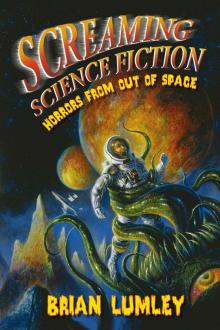 Screaming Science Fiction
Screaming Science Fiction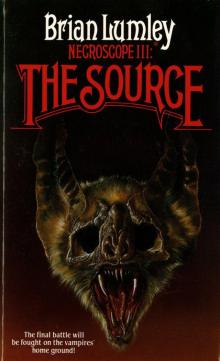 Necroscope III: The Source
Necroscope III: The Source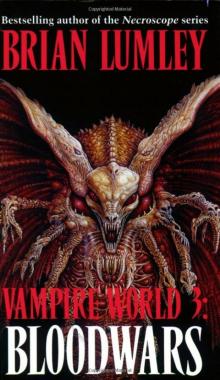 Vampire World I: Blood Brothers
Vampire World I: Blood Brothers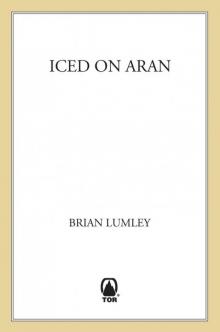 Iced on Aran
Iced on Aran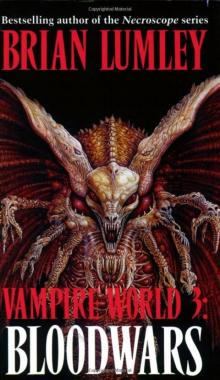 Necroscope: Invaders
Necroscope: Invaders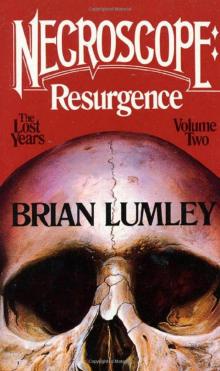 Necroscope: The Lost Years
Necroscope: The Lost Years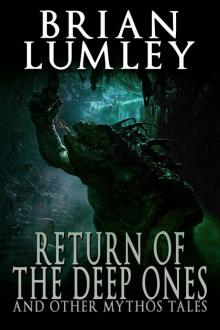 Return of the Deep Ones: And Other Mythos Tales
Return of the Deep Ones: And Other Mythos Tales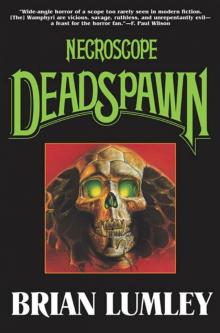 Necroscope V: Deadspawn
Necroscope V: Deadspawn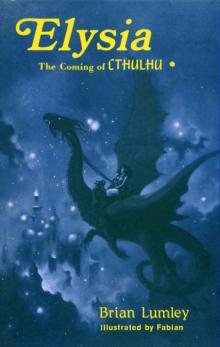 Titus Crow, Volume 3: In the Moons of Borea, Elysia
Titus Crow, Volume 3: In the Moons of Borea, Elysia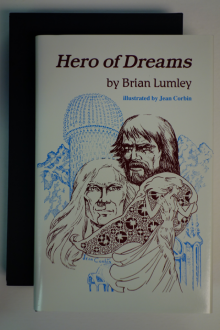 Hero of Dreams
Hero of Dreams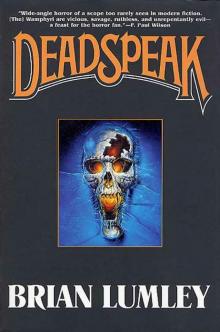 Necroscope IV: Deadspeak
Necroscope IV: Deadspeak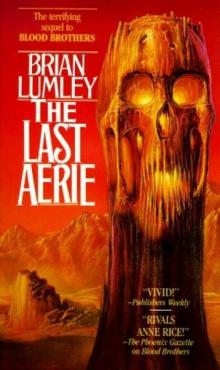 The Last Aerie
The Last Aerie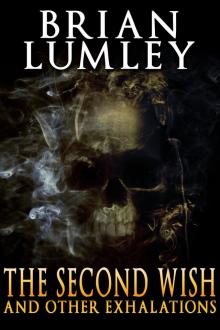 The Second Wish and Other Exhalations
The Second Wish and Other Exhalations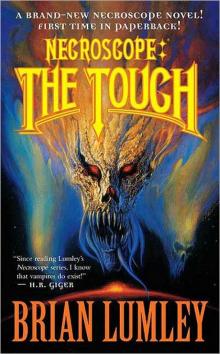 Necroscope: The Touch
Necroscope: The Touch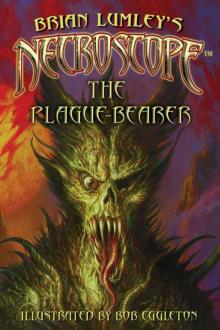 Necroscope: The Plague-Bearer
Necroscope: The Plague-Bearer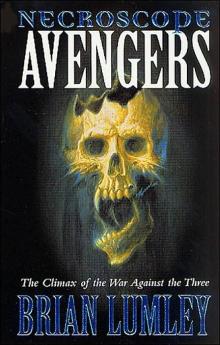 Necroscope: Avengers
Necroscope: Avengers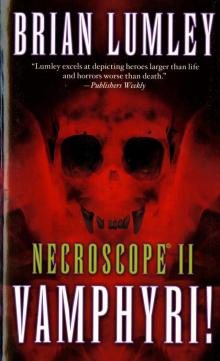 Necroscope II: Wamphyri
Necroscope II: Wamphyri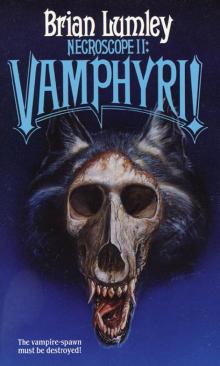 Necroscope II_Vamphyri!
Necroscope II_Vamphyri!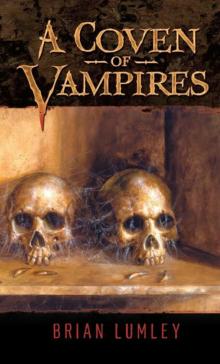 A Coven of Vampires
A Coven of Vampires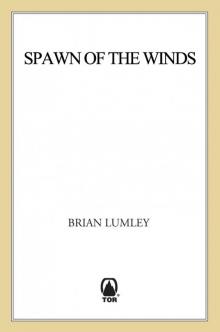 Spawn of the Winds
Spawn of the Winds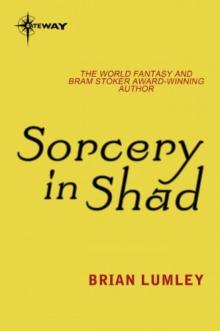 Sorcery in Shad
Sorcery in Shad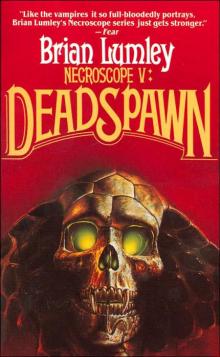 Deadspawn
Deadspawn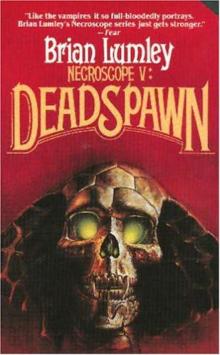 Necroscope V: Deadspawn n-5
Necroscope V: Deadspawn n-5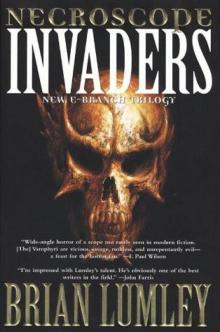 Necroscope: Invaders e-1
Necroscope: Invaders e-1![Beneath the Moors and Darker Places [SSC] Read online](http://i1.bookreadfree.com/i/03/20/beneath_the_moors_and_darker_places_ssc_preview.jpg) Beneath the Moors and Darker Places [SSC]
Beneath the Moors and Darker Places [SSC]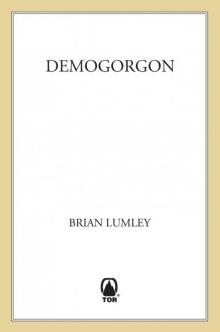 Demogorgon
Demogorgon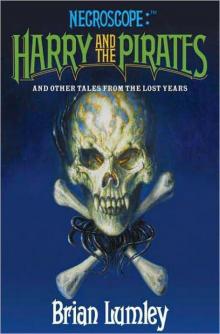 Harry and the Pirates_and Other Tales from the Lost Years
Harry and the Pirates_and Other Tales from the Lost Years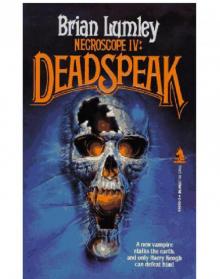 Necroscope IV: Deadspeak n-4
Necroscope IV: Deadspeak n-4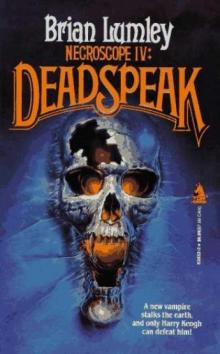 Deadspeak
Deadspeak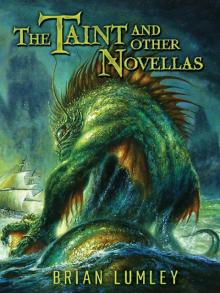 The Taint and Other Novellas
The Taint and Other Novellas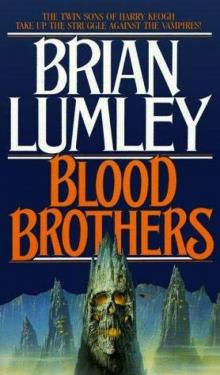 Blood Brothers vw-1
Blood Brothers vw-1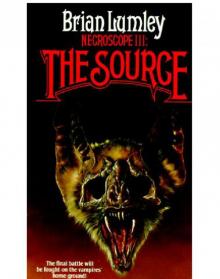 The Source n-3
The Source n-3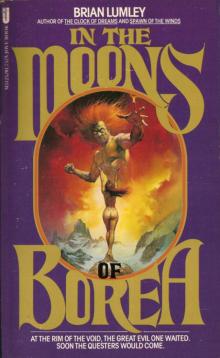 In the Moons of Borea
In the Moons of Borea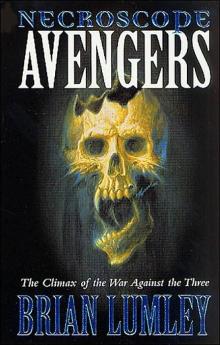 Avengers
Avengers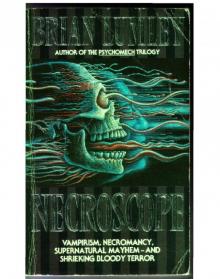 Necroscope n-1
Necroscope n-1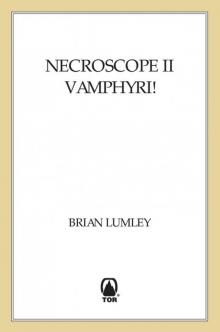 Vamphyri!
Vamphyri!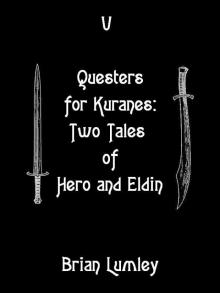 Questers for Kuranes: Two Tales of Hero and Eldin
Questers for Kuranes: Two Tales of Hero and Eldin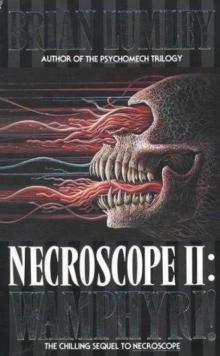 Necroscope II: Wamphyri! n-2
Necroscope II: Wamphyri! n-2 The Source
The Source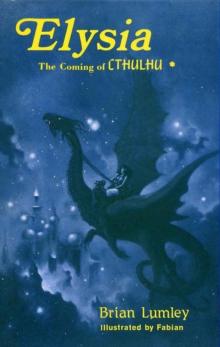 Elysia
Elysia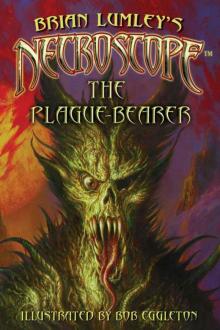 The Plague-Bearer
The Plague-Bearer The Touch
The Touch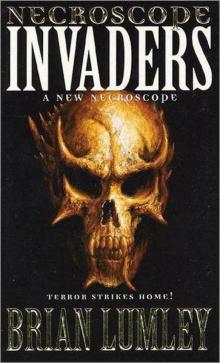 Invaders
Invaders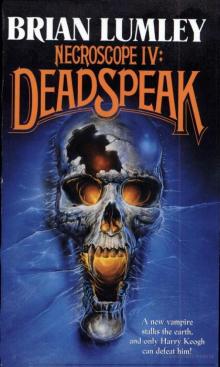 Necroscope 4: Deadspeak
Necroscope 4: Deadspeak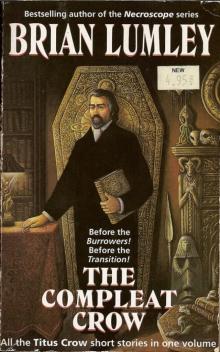 Compleat Crow
Compleat Crow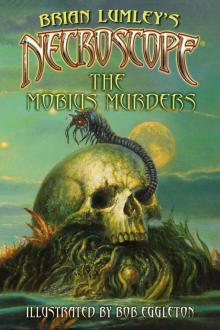 The Mobius Murders
The Mobius Murders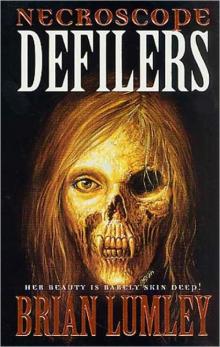 Defilers
Defilers